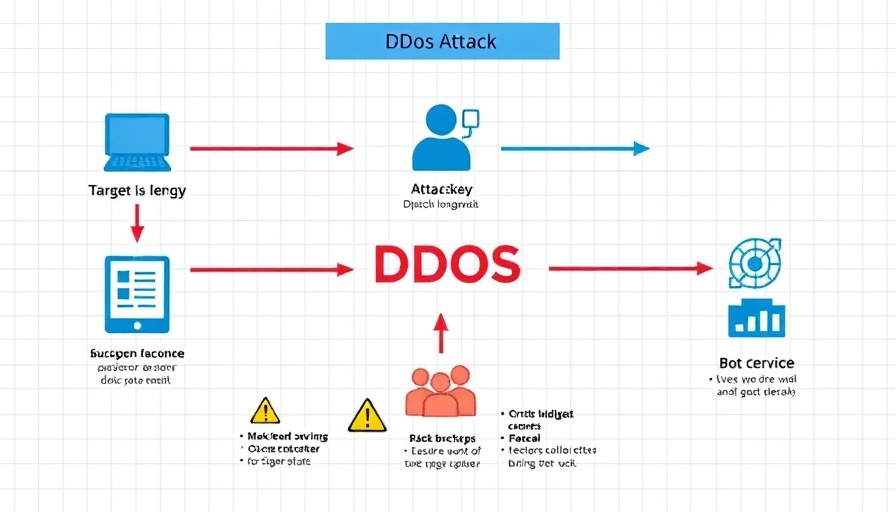
Understanding DDoS Attacks: A Growing Threat
Distributed Denial of Service (DDoS) attacks have been burgeoning in both frequency and sophistication, making them a pressing concern for websites of all sizes. According to Statista, the number of DDoS attacks nearly doubled from early 2023 to late 2024, peaking at over half a million in a single quarter. This equates to approximately 5,600 attacks daily. Notably, these attacks are not exclusive to large corporations or government entities; even the smallest websites can find themselves in the crosshairs of malicious actors.
What Exactly is a DDoS Attack?
A DDoS attack overwhelms a website by flooding its server with excessive traffic, rendering it slow or even completely unresponsive. The 'distributed' aspect means that multiple devices, often from numerous locations worldwide, collaborate in executing the attack. These attackers frequently harness botnets—a collection of devices compromised by malware—making it increasingly challenging to pinpoint the source of the assault. For instance, researchers found a botnet in 2025 consisting of around 30,000 webcams and video recorders. Fortunately, most DDoS attacks are relatively brief, with around 70% lasting less than 15 minutes.
Types of DDoS Attacks
DDoS attacks can be categorized into three primary types:
- Volumetric Attacks: These are the most common form, aiming to saturate bandwidth by inundating the network with high traffic volumes.
- Application Layer Attacks: This type overwhelms web servers with repeated requests, slowing down or crashing the site.
- Protocol Attacks: Also referred to as state-exhaustion attacks, they focus on network equipment like load balancers and firewalls.
Attackers may combine these methods to complicate defenses further.
Reasons Why Websites Are Targeted
There are varied motivations behind DDoS attacks:
- Ideological Reasons: Politically motivated attacks often target institutions or government websites aligned with opposing ideologies.
- Hacktivism: Groups may employ DDoS attacks to protest social or political issues, pushing back against censorship or war.
- Extortion: Some criminal entities utilize DDoS attacks to extort businesses, demanding payment to cease disruption.
Preventive Measures: Safeguarding Your Website
While the threat of DDoS attacks may appear daunting, there are proactive strategies to mitigate risks:
- Employ DDoS Protection Services: Collaborating with specialized services can fortify your defenses and reduce vulnerabilities.
- Utilize a Content Delivery Network (CDN): CDNs can distribute traffic across a wider geographic area, minimizing the impact of sudden traffic spikes.
- Regularly Update Your Software: Keeping your web applications and systems up to date can thwart potential exploits that attackers might target.
- Implement Rate Limiting: By controlling the number of requests a server can process from a single IP address, you can mitigate the chance of overload.
The Future: Staying Ahead of the Curve
As technology continues to evolve, so do the tactics used by cybercriminals. Staying informed about the latest trends in DDoS attacks and maintaining an adaptive security strategy will be crucial for businesses, especially those relying on online platforms. Knowledge is a powerful tool—understanding potential threats helps reinforce defenses and secure the future of your website.
 Add Row
Add Row  Add
Add 




Write A Comment